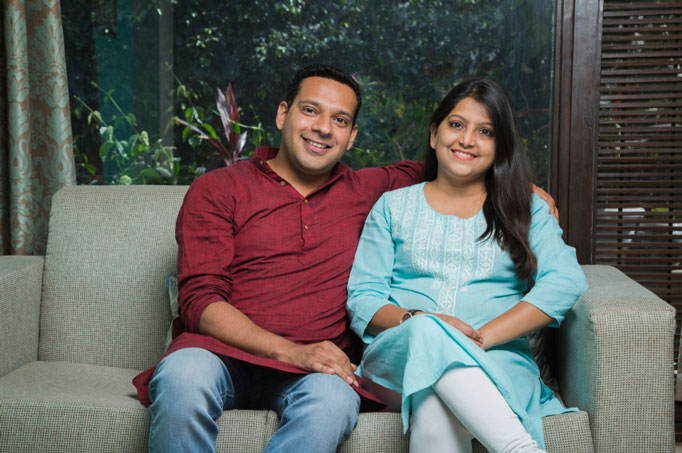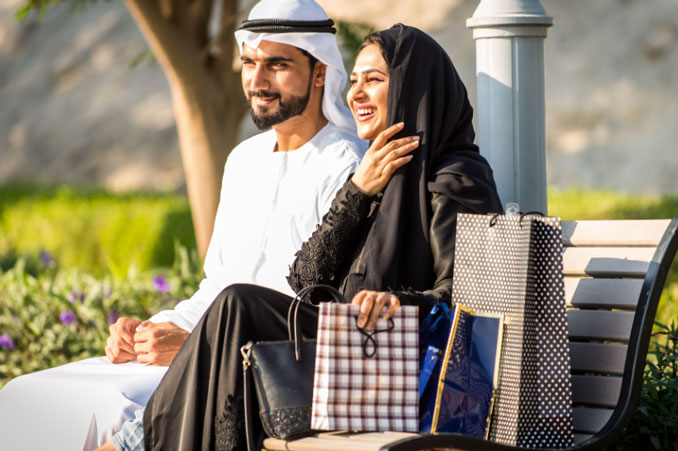The Beautiful Challenge of Multicultural Love in Dubai - A Dubai Mental Health Coach and Couples Therapist's Guide to Cross-Cultural Relationships

The Beautiful Challenge of Multicultural Love in Dubai - A Dubai Mental Health Coach and Couples Therapist's Guide to Cross-Cultural Relationships
How to build bridges of understanding while honouring your unique cultural heritage
The Beautiful Challenge of Multicultural Love in Dubai
Dubai is a city where love knows no borders. Walk through any malls on any weekend, and you'll see couples speaking different languages, celebrating different traditions, and navigating the beautiful complexity of cross-cultural relationships.
As a culturally-sensitive couples therapist in Dubai, I've had the privilege of working with partners from many nationalities, helping them transform cultural differences from obstacles into strengths.
But let's be honest—multicultural relationships aren't always as seamless as they appear on social media. Behind the romantic photos of international couples exploring the souks together, there are often complex conversations about family expectations, religious differences, and the challenge of creating new traditions while honouring ancestral ones.
If you're in an interfaith relationship, cross-cultural marriage, or simply dating someone from a different background here in the UAE, this guide will help you navigate the unique challenges and incredible opportunities that come with multicultural love.

The Hidden Challenges of Cross-Cultural Relationships
1. The "Lost in Translation" Problem
Layla, a Syrian marketing executive, and Tom, a British engineer, came to my multicultural couples therapy practice after two years of escalating misunderstandings. "We speak the same language," Layla said, "but somehow we're always talking past each other."
Their breakthrough came when we explored how their cultural communication styles differed:
• Layla's Middle Eastern background emphasized relationship harmony, indirect communication, and reading between the lines
• Tom's British culture valued directness, explicit communication, and individual expression
The Communication Bridge: We developed a "cultural translation" practice where each partner would say, "In my culture, when I say X, I mean Y. How does that land in your cultural framework?"
2. The Family Integration Maze
"His family thinks I'm too independent. My family thinks he's too passive," shared Priya during her cross-cultural marriage counselling session. She's Indian-Canadian, married to Marcus, who's German-American. Both sets of families had different expectations about gender roles, career priorities, and family involvement in their marriage.
Common Family Integration Challenges you may have experienced:
• Different levels of family involvement in relationship decisions
• Different expectations about holidays, visits, and financial support (often an ongoing problem)
• Language barriers with extended family members
• Different religious or spiritual backgrounds
• Different career and lifestyle expectations
3. The Identity Crisis Question
"Sometimes I feel like I'm losing myself trying to fit into his culture," Maria, a Colombian graphic designer, confided. Many partners in multicultural relationships struggle with maintaining their cultural identity while adapting to their partner's background.
How to Stay True to Yourself While Growing Together:
- Knowing when to "switch modes": Sometimes you might act one way with your family and another with your partner's friends—and that's totally normal. It's about learning when to lean into different parts of who you are.
- Keeping the traditions that matter: Maybe it's cooking your grandmother's recipes, celebrating certain holidays, or following specific customs. Don't let these slip away just because your partner doesn't share them initially.
- Don't lose your language: Keep speaking your native tongue, even if your partner doesn't understand yet. Better yet, teach them some phrases—it's one of the most intimate gifts you can share.
- Building bridges, not walls: Stay close to your cultural community while also embracing new friend groups. You don't have to choose between your old world and your new one.
The Six Pillars of Successful Cross-Cultural Relationships
Pillar 1: Embrace Cultural Curiosity rather than Cultural Judgment
The most successful multicultural couples I work with share one trait: genuine curiosity about their partner's background. Instead of thinking "That's weird" when encountering unfamiliar traditions, they ask "Can you help me understand the meaning behind this?"
Practice This Week: Ask your partner to teach you about one cultural tradition that's important to them. Listen with genuine curiosity, not to fix or change, but to understand.
Pillar 2: Create Your Unique Cultural Blend
Ahmed and Lisa created a beautiful example of cultural integration. He's Emirati, she's Irish-American. Instead of choosing between cultures, they created new traditions:
• Friday family dinners that rotate between Middle Eastern and Irish cuisine
• Holiday celebrations that honour both Islamic and Christian traditions respectfully
• Language learning where both partners are studying each other's language
• Travel planning that includes visits to both families' home countries
Pillar 3: Navigating Religious and Spiritual Differences
Interfaith relationships require extra sensitivity and creativity. In my interfaith marriage counselling practice, I've seen couples successfully navigate:
• Different prayer practices and spiritual routines
• Holiday celebrations that don't conflict with either faith
• Child-rearing decisions about religious education
• Family acceptance within religious communities
• Community participation in both faith traditions
Success Story: Fatima and David (Muslim-Christian couple) created "spiritual appreciation nights" where they take turns sharing meaningful aspects of their faith traditions without pressure to convert or change.
Pillar 4: Handling Your Respective Extended Family Dynamics
"My mother-in-law speaks to me in Tamil, which I don't understand, and then gets upset when I don't respond appropriately," shared Jennifer, married to Raj. Extended family integration requires patience, creativity, and clear boundaries.
Family Integration Strategies:
• Language bridge-building: Learn key phrases in your partner's family language
• Cultural liaison approach: Have your partner help translate not just words, but cultural expectations
• Respect boundaries: Some cultural differences may need to be navigated rather than completely resolved
• Find common ground: Focus on shared values like family love, respect, and care
Pillar 5: Dealing with External Judgment and Discrimination
Unfortunately, multicultural couples sometimes face external challenges from society, workplace discrimination, or community judgment. Building resilience together is crucial.
Building Resilience:
• Develop a support network of other multicultural couples
• Practice responses to inappropriate questions or comments
• Focus on your relationship values rather than external opinions
• Seek professional support when discrimination impacts your mental health
Pillar 6: Teaching Cultural Appreciation to Children
For couples planning families, raising third culture kids (children who grow up in cultures different from their parents') requires intentional cultural education.
Cultural Education for Children:
• Storytelling from both cultural traditions
• Language exposure to multiple languages
• Cultural celebrations that honour all heritage backgrounds
• Travel and connection to extended family when possible
• Identity flexibility that allows children to embrace their multicultural heritage
Red Flags in Cross-Cultural Relationships

While cultural differences are normal, some patterns require immediate attention:
- Cultural Superiority: If one partner consistently criticizes or dismisses the other's culture as "backwards," "primitive," or "wrong," this indicates deeper respect issues, not just cultural differences.
- Isolation from Cultural Community: If your partner discourages you from maintaining connections to your cultural community, family, or traditions, this may be a form of cultural control.
- Religious Coercion: Pressure to convert religions or abandon spiritual practices that are meaningful to you goes beyond healthy cultural integration.
- Identity Erasure: If you feel like you're constantly suppressing your cultural identity to keep peace in the relationship, this imbalance needs addressing.
When to Seek Professional Help
Consider multicultural couples therapy if you're experiencing:
• Recurring conflicts about cultural practices or family expectations
• Communication breakdowns that seem rooted in cultural misunderstandings
• Family pressure that's creating stress in your relationship
• Identity struggles related to cultural integration
• Religious or spiritual conflicts that feel unresolvable
• Parenting disagreements about cultural education for children
Success Stories from Dubai's Multicultural Community
Amira and James: When Cairo Meets Glasgow
Amira (Egyptian) and James (Scottish) spent their first three years together feeling like they were constantly choosing sides. Family gatherings were tense, religious holidays felt complicated, and they weren't sure how to make everyone happy.
Here's what finally worked for them:
- They stopped trying to blend everything: James has his quiet space for reflection, Amira has hers for prayer. But they also created shared rituals—like their Sunday morning coffee talks where they discuss what's meaningful to each of them spiritually.
- They became each other's cultural translators: Instead of expecting their families to just "get it," they learned to explain things. James now knows why Ramadan is important to Amira's family. Amira understands why Burns Night matters to James's dad.
- They brought their worlds together: They started hosting potluck dinners where Amira's Egyptian friends could meet James's Scottish colleagues. Turns out, everyone loves sharing food and stories—no matter where they're from.
Yuki and Omar: Japanese-Lebanese Partnership
Yuki (Japanese) and Omar (Lebanese) used to drive each other crazy with how differently they communicated.
- The "say it or don't say it" challenge: Yuki would hint that she was upset, expecting Omar to just pick up on her mood. Omar would ask directly "What's wrong?" and get frustrated when she said "nothing." Meanwhile, Omar's loud, animated conversations with his family made Yuki feel overwhelmed and shut down.
- The family respect maze: In Yuki's family, you don't contradict your elders or make big decisions without consulting them first. Omar's family is the same way, but they express it through passionate debates around the dinner table. Both felt like they were disrespecting someone's parents no matter what they did.
- The "me vs. we" career struggle: Yuki was raised to think about what's best for the family and company first. Omar grew up believing you should chase your individual dreams. When promotion opportunities came up, they couldn't agree on whose career should take priority or whether moving cities was even okay without extended family approval.
What saved them? They learned to laugh about their differences instead of taking them personally.
Priya and Michael: Indian-American Family Builders
With two young kids (ages 4 and 7), here's what actually happens in their house:
- The bilingual dream vs. reality: Priya tries to speak Hindi, but when the 4-year-old is having a meltdown about the wrong colour cup, she defaults to English because it's faster. The 7-year-old pretends not to understand Hindi when it's time to clean up toys. Most days, "bilingual household" means Priya yelling at Michael in Hindi when she's really frustrated.
- Cultural traditions when you're exhausted: They had grand plans for teaching both religions, but honestly? Some years they skip Diwali because they're too tired to explain why they can't just do Christmas. The kids know they're "Hindu and Christian" but mainly they care about which holidays gives more gifts.
- Long-distance grandparents are complicated: The time difference means someone's always cranky during video calls. Priya's mom criticizes how thin the kids look. Michael's mom makes passive-aggressive comments about "all those foreign foods." The kids usually wander off after five minutes, leaving the adults to awkwardly make small talk across continents.
Most days they're just trying not to mess up their kids too badly—same as every other parent.
Your Cross-Cultural Relationship Action Plan

Week 1: Cultural Appreciation Assessment
• List five things you love about your partner's culture
• Identify one cultural practice you'd like to understand better
• Ask your partner what aspects of your culture they find most meaningful
Week 2: Communication Style Analysis
• Discuss how conflict is handled in your respective cultures
• Practice "cultural translation" for one conversation daily
• Identify communication patterns that might be culturally influenced
Week 3: Family Integration Planning
• Plan one activity that honors your partner's cultural background
• Discuss family expectations that feel challenging to navigate
• Create boundaries that protect your relationship while respecting family
Week 4: Future Visioning
• Discuss what cultural traditions you want to maintain as a couple
• Plan how you'll handle cultural education if you have children
• Identify cultural communities you want to build connections with in Dubai
Creating Your Cultural Love Story
Your cross-cultural relationship isn't just a personal journey—it's part of Dubai's incredible multicultural tapestry. Every successful multicultural couple contributes to a more connected, understanding world.
The challenges you're navigating—from family integration to religious differences to communication styles—are real, but they're also opportunities to build something beautiful and unique. When two cultures come together in love, they create something new while honouring something ancient.
Remember: Cultural differences don't have to be relationship obstacles. With understanding, respect, and sometimes professional guidance, they can become your relationship's greatest strengths.
Ready to Build Cultural Bridges in Your Relationship?

If you're struggling to navigate cultural differences, feeling misunderstood, or simply want to strengthen your multicultural relationship, you don't have to figure it out alone.
As a culturally-sensitive couples therapist in Dubai I support couples in cross-cultural marriages and interfaith relationships. I provide a safe space where both partners' cultural backgrounds are honoured and celebrated. Whether you're dealing with family integration challenges, communication style differences, or identity questions, multicultural couples therapy can help you build bridges while maintaining your unique cultural identities.
Book a free 20-minute consultation to explore how culturally-informed therapy can strengthen your relationship. During our conversation, we'll:
• Assess your specific cultural integration challenges
• Identify your relationship's cultural strengths and growth areas
• Create a culturally-sensitive therapy plan that honours both backgrounds
• Determine if our multicultural couples therapy approach fits your needs
Your love story deserves to honour all the beautiful cultures that make you who you are.
Ready to begin your healing journey? As a trauma-informed Mental Health Coach and offering Relationship Therapy, I provide a safe space where your experiences are validated and your healing is prioritized.
About the Author: Evelyne L. Thomas is an experienced Mental Health Coach and multicultural Couples Therapist and Coach based in Dubai specializing in cross-cultural relationships, interfaith marriages, and expat family dynamics. With experience supporting couples for over 10 years and over 40 years-experience of living and working in the UAE, she brings cultural sensitivity and holistic healing approaches to Mental Health and Relationship Therapies in the UAE. She works with English & French speaking clients online worldwide or in person in Dubai.
All cultures, all backgrounds, all love stories are welcome.
Never Miss a New Journal Entry
Join the newsletter to stay up to date on the latest from the blog and get answers on mental health and relationships.


.jpg)





